Discover All Aboard ADHD
All Aboard ADHD

All Aboard ADHD
Author: Claire Quigley Ward
Subscribed: 53Played: 876Subscribe
Share
© Claire Quigley Ward
Description
All Aboard ADHD is the podcast that helps parents and caregivers navigate the ADHD journey. Whether you're right at the beginning asking, “What now?” or further along the path wondering, “What next?” - All Aboard ADHD is here for you. Each episode brings expert insights, inspiring special guest stories, and real-life experiences from parents whose children have ADHD - helping you feel informed, empowered, and less alone. If you're supporting a child with ADHD, have ADHD yourself, or simply want to understand more about the incredible ADHD brain, join us on this journey of discovery.
54 Episodes
Reverse
Why does GCSE revision feel such a challenge for teenagers with ADHD, and how can parents support them without the process turning into a battle?In this episode of the All Aboard ADHD podcast, Claire is joined by Sarah Kennett, an ADHD coach, former head of science, and founder of Science Cafe. Sarah brings a unique dual perspective to this conversation: professional expertise as a long-term educator and lived experience of someone who was once the teen who couldn’t revise. Together, Sarah and Claire unpack what’s going on for ADHD brains during exam season and offer parents practical, neuro-affirming strategies that they can put into place with their teens.Claire and Sarah discuss the common pitfalls of traditional study methods and why "just sitting down and reading" is often a recipe for shutdown, rather than success. They discuss:Executive functioning overload and why revision can be a "perfect storm" for ADHD brains, requiring planning, prioritising, and memory all at onceThe ADHD "Sticky Note" Memory and how ADHD students often lose information "mid-process" during an exam due to working memory challengesThe difference between activation and motivation, understanding that struggling to start is rarely about not caring, but often a challenge with task initiationHow to use dopamine as a study tool, for example providing quick wins and interest-led learning, which can fuel the brain’s reward systemIncorporating movement and the power of "human photocopying," standing desks, and audio revision for kids who think better when they’re activeHow to create a retrieval practice by revisiting information "little and often" which helps teens build long-term confidence and resilienceUnderstanding the decompression gap - why jumping straight into revision after school can lead to burnout and how to prioritise nervous system regulation firstWhether your teenager is approaching their mocks, or you're planning ahead for GCSE season, this episode is packed with validation and creative tools to help your child show what they know without the mountain of stress.Further resources and links:Learn more about Sarah Kennett: https://www.science-cafe.co.uk/Download Sarah’s Free Revision Guide: https://www.freeguide.sciencecafe.co.uk/Follow Sarah on Instagram: @science_cafe_ukADHD coaching and Resources from Claire: https://allaboardadhd.comFollow Claire on Instagram & TikTok: @allaboardADHDThe views shared in this episode are those of the guest, based on their professional expertise and personal experience. This content is for informational purposes only and is not a substitute for professional medical, educational, or psychological advice. Please consult a qualified professional for personalised support relevant to your individual circumstances.
What is the Neurodivergence Bill and how could it help ensure practical, everyday adjustments that actually help children learn and thrive at school?In this episode of the All Aboard ADHD Podcast, Claire is joined by MP Adam Dance to discuss the Neurodivergence (Screening and Teacher Training) Bill, which attempts to bring earlier identification and better support for ADHD, dyslexia, autism and other neurodivergent conditions into primary schools. Adam is the Liberal Democrat MP for Yeovil. He has ADHD and dyslexia himself, and his personal story deeply informs his campaign. Claire and Adam discuss:How children continue to face stigma and bullying due to differences such as ADHD and why early universal screening will ensure they can access the right understanding and support at the right timeHow misunderstood children can internalise being “naughty” and disengage from learning, plus the potential impact of this on their longer-term life outcomesAdam’s personal experience being diagnosed with ADHD and why he’s so passionate about driving this bill forwardThe core elements of the Neurodivergence (Screening and Teacher Training) Bill including universal primary‑age screening, continuous SEN training for teachers, plus how classroom teaching can be adapted to better support children with additional needsThe stark wealth gap that exists in access to diagnosis and support, and how universal screening could act as as a way to level the playing fieldThe challenges of systemic underfunding, plus the need for a 10‑year SEND plan to address the current crisis which as Adam describes “shouldn't be political at all.”A message of hope and validation to parents supporting their neurodivergent children, reassuring them that their voices are being heardThis episode is a reassuring reminder to parents fighting for the right support for their children, that longer-term change is in motion and change is possible.Please note Adam was in his busy parliamentary office when this episode was recorded, so you may hear some background noise as a result.Further resources and linksLearn more about Adam and his work: https://www.libdems.org.uk/mps/yeovilTo read the Neurodivergence (Screening and Teacher Training) Bill: https://bills.parliament.uk/bills/4017 To order a copy of the book Unstoppable by Design which features chapters on both Adam and Claire’s ADHD stories: https://amzn.to/4qa0t2nADHD coaching and resources from Claire:https://allaboardadhd.comFollow Claire on Instagram & TikTok:@allaboardADHDThe views shared in this episode are those of the guest, based on their professional expertise and personal experience. This content is for informational purposes only and is not a substitute for professional medical, educational, or psychological advice. Please consult a qualified professional for personalised support relevant to your individual circumstances.
What happens when you finally understand your ADHD and how can that insight reshape how you see your past, your work, and your parenting?In this episode of All Aboard ADHD, Claire is joined by Emma Sayle, one of the UK’s leading female entrepreneurs and founder of the global female empowerment brand Killing Kittens, which now has over 200,000 members with events across the globe. Diagnosed with ADHD in her early 30s, Emma shares her personal story of growing up undiagnosed, building multiple businesses, and parenting three neurodivergent children, all while learning to understand her own ADHD brain.Emma reflects honestly on how receiving an ADHD diagnosis helped her reframe decades of lived experience, from school and relationships to risk-taking, ambition, and burnout. She explores the cost of masking, the pressure placed on high-achieving women, and how traits once labelled “too much” have become core strengths in her adult life.Together, Claire and Emma explore:What led to Emma’s ADHD diagnosis in adulthood, and how finally having an explanation reshaped her understanding of herselfHow reflecting on childhood and school experiences through an ADHD lens brought clarity, compassion, and perspectiveWhy ADHD in girls and women is so often missed, and how gendered expectations influenced how Emma was perceivedThe ADHD challenges Emma experienced growing up that later became strengths in leadership, creativity, and entrepreneurshipHow stimulation-seeking, future-focused thinking, and high energy shaped Emma’s career path and business successWhy environment plays a crucial role in focus, wellbeing, and balance, often more than motivation or disciplineHow understanding her own ADHD has transformed the way Emma parents her children, particularly around empathy and connectionA reassuring message for parents navigating the ADHD journey, especially those wishing they had answers soonerThis episode is candid, reflective, and deeply reassuring, offering hope to parents and adults who are still making sense of their own ADHD story, while navigating the responsibility of raising neurodivergent children.Learn more about Emma Sayle and her work:Killing Kittens: https://www.killingkittens.comThe Sisterhood: https://www.thesisterhood.co.ukTo order a copy of the book Unstoppable by Design which features chapters on both Emma and Claire’s ADHD stories: https://amzn.to/4qa0t2nADHD coaching and resources from Claire:https://allaboardadhd.comFollow Claire on Instagram & TikTok:@allaboardADHDThe views shared in this episode are those of the guest, based on their professional expertise and personal experience. This content is for informational purposes only and is not a substitute for professional medical, educational, or psychological advice. Please consult a qualified professional for personalised support relevant to your individual circumstances.
How can parents better partner with schools and protect their kids’ capacity?In this episode of All Aboard ADHD, Claire is joined by expert guest Kate Steer to discuss the daily challenges faced by neurodivergent children in the classroom, and how we as parents can partner positively with schools to better support our children's needs. Kate is a neurodivergent family coach, education consultant, former teacher, and founder of Nurtured Neuro Kids. She specialises in supporting children with autism and ADHD, alongside their families.Claire and Kate discuss:What it’s like being “That Parent” and how a reframe can help to see advocating for your child, as a badge of honourWhy “just coping” through school isn’t good enough for our children and how rigid, one-size-fits-all systems can put neurodivergent kids at a disadvantageThe impact of flexibility and interest-led learning in school, plus why school policy often creates a barrier - for example using children’s interests (e.g. rollercoasters or dinosaurs) to unlock motivation vs how whole-school rules (e.g. no laptops until Year 5) can often block support that could benefit all childrenUnderstanding reasonable adjustments as a legal entitlement under the Equality Act, plus how to identify your child’s biggest challenges and advocate for what they needThe potential sensory triggers our kids encounter throughout the school day and how they can be supported within the classroom to help regulation with accommodations like movement breaks and fidgets (which are “tools, not toys”!)Practical tips to support children with their home routines, capacity and after-school decompression, such as keeping demands low and having lots of snacks available!Ideas for smoother transitions, for example, navigating drop-offs and “making the unfamiliar feel familiar” when going back after the school holidaysThis episode is honest, validating, and essential listening for any parent standing up for their neurodivergent child within a system that often doesn’t fit or suit their needs. Kate encourages parents to trust their instincts, parent the way their child needs, and find their community.Kate’s home-educated neurodivergent son is patiently playing off camera whilst she and Claire recorded this conversation, so you will hear some toy noises in the background.Further resources and linksLearn more about Kate Steer: https://www.nurturedneurokids.com/Follow Kate on Instagram: @nurturedneurokidsFor more information on understanding reasonable adjustments as a legal entitlement under the Equality Act, listen to the All Aboard ADHD Episode “SEN at School” with Laurent Lambert https://www.allaboardadhd.com/blog/sen-at-school-senco-lauren-lambert EBSA is a term used to describe children and young people (CYP) who experience challenges in attending school due to negative feelings (such as anxiety). Find out more here: https://www.supportservicesforeducation.co.uk/page/20029 ADHD coaching & resources from Claire: https://allaboardadhd.comFollow Claire on Instagram & TikTok: @allaboardADHDThe views shared in this episode are those of the guest, based on their personal experience and professional expertise. This content is for informational purposes only and is not a substitute for professional medical, educational, or psychological advice. Please consult a qualified professional for personalised support relevant to your individual circumstances.
How can understanding ADHD later in life reshape everything you thought you knew about yourself, your struggles, your creativity, and the choices that shaped your past?In this episode of the All Aboard ADHD podcast, Claire is joined by Pearl Lowe - designer, author, former musician, and creator of the beloved Faded Glamour interiors books. Known for her distinctive vintage aesthetic and her ability to transform spaces with character and soul, Pearl opens up about an entirely different kind of transformation: receiving an ADHD diagnosis in adulthood and finally making sense of a lifetime of intensity, sensitivity, and creative chaos.Pearl shares her journey from growing up as an undiagnosed neurodivergent child in the 70s and 80s, to navigating the music industry, addiction, motherhood, and years of living at full speed, all without understanding her neurodivergence. Her diagnosis brought clarity, compassion, and a new way of relating to herself, her environment, and her family.Together, Claire and Pearl explore:How Pearl’s ADHD diagnosis in midlife helped her make sense of her childhood, her emotional world, and the overwhelm she experienced navigating school, relationships, and early fameThe impact of growing up as an undiagnosed neurodivergent girl including the masking, misinterpretation, and lack of understanding that shaped her self-beliefWhy environment played a central role in Pearl’s history of addiction, along with how “changing her playground” became a turning point in her recovery and wellbeingThe deep connection between ADHD and creativity, and how Pearl’s impulsivity, imagination, and sensitivity became the foundation of her design and interiors careerThe challenges she faced as a young person that have now become her greatest strengths as an adult, particularly intuition, emotional depth, and a vivid creative visionWhat moving from London to Somerset, and later back to the city, taught her about nervous system regulation, identity, and finding the right pace of lifeHow understanding her neurodivergence has changed the way she parents, connects with her children, and interprets their emotional needsThe message of hope she wants every parent on the ADHD journey to hear, especially those wishing they could see into their child’s futureThis is a beautifully honest, warm, and inspiring conversation about creativity, chaos, self-understanding, and learning to rewrite your story with kindness.Further resources and linksPearl Lowe’s books: • Faded Glamour in the City: https://amzn.to/4oFiZyp • All That Glitters: https://amzn.to/4pANN3R • Faded Glamour by the Sea: https://amzn.to/4puzNJ0 • Faded Glamour: Inspirational Interiors: https://amzn.to/43Vt56JLearn more about Pearl: https://pearllowe.co.ukADHD coaching and resources from Claire: https://allaboardadhd.comFollow Claire on Instagram & TikTok: @allaboardADHDThe views shared in this episode are those of the guest, based on their personal experience and professional expertise. This content is for informational purposes only and is not a substitute for professional medical, educational, or psychological advice. Please consult a qualified professional for personalised support relevant to your individual circumstances.
Why is it so hard for women with ADHD to trust their instincts, and what happens when we finally do?In this episode of All Aboard ADHD, Claire is joined by Sam Bramwell, an ADHD coach, entrepreneur, and expert in polyvagal theory, who was diagnosed with ADHD in her 40s. Sam supports women navigating late-diagnosed ADHD, and her work centres around helping them rebuild self-trust, overcome shame, and find a more compassionate way of living.In this powerful and deeply relatable conversation, Sam shares her journey from years of masking, burnout, and self-doubt to finally understanding her neurodivergence and rebuilding her life around authenticity rather than fear. Together, Claire and Sam unpack why so many girls and women go undiagnosed, the emotional fallout of that process, and the freedom that comes with finally making sense of yourself and tuning into your nervous system’s needs. Their conversation covers:What polyvagal theory is and how the autonomic nervous system's three states can show up in our day-to-day experienceHow ADHD traits in girls and women often go unnoticed, misinterpreted, or attributed to anxiety, perfectionism, or “high functioning” behaviourThe cumulative impact of years of masking, from people-pleasing to chronic overachievement, and why unmasking can feel both frightening and liberatingThe emotional crash that can often follow diagnosis: grief, anger, relief, and the slow rebuilding of identityHow fear-based decision-making develops and why women with ADHD often learn to distrust themselvesHow relationships and parenting shift when you begin to tune into your nervous system, communicate your needs, set boundaries, and stop pretending to be “being fine.”What self-compassion actually looks like in practice, and the importance of slowing down, resting, and listening to your bodyPractical tools for reconnecting with yourself, including values-based decision-making, nervous system regulation, boundaries, and community supportWhether you’ve recently discovered your ADHD or are still unpacking years of confusion, this episode offers validation, insight, and a path toward rebuilding your life with softness rather than self-criticism.Further resources and linksSam Bramwell Coaching: sambramwellcoaching.comFollow Sam on Instagram: @samjbramwellBuy Sam’s Book - Enough is EnoughAll Aboard ADHD coaching & resources: https://allaboardadhd.comFollow Claire on Instagram & TikTok: @allaboardADHDThe views shared in this episode are those of the guest, based on their professional expertise and personal experience. This content is for informational purposes only and is not a substitute for professional medical, educational, or psychological advice. Please consult a qualified professional for personalised support relevant to your individual circumstances.
Why does rejection feel so much more intense for people with ADHD and what can we do about it?In this episode of All Aboard ADHD, Claire is joined by Dr Alex Conner, an ADHD coach, scientist, author, and co-host of The ADHD Adults Podcast, to unpack one of the most painful and often misunderstood experiences within ADHD, Rejection Sensitivity Dysphoria (RSD).Dr Conner combines his lived experience as an adult with ADHD, his academic background in neuroscience, and his practical work training ADHD coaches to shed light on why RSD can be so overwhelming and what helps when it hits. He is also co-author of ADHD Unpacked and co-founder of the charity ADHD Adult UK, dedicated to evidence-based education and advocacy.Together, Claire and Alex explore:What rejection sensitivity dysphoria (RSD) really is and why it’s not an official diagnosis, yet feels profoundly real for so many people with ADHDHow emotional dysregulation connects to RSD and why the ADHD brain can amplify feelings of criticism, rejection, or embarrassmentThe debate around whether RSD is biological, learned, or both and what current science suggestsThe connection between RSD, social anxiety, and hypervigilance, and how to tell them apartThe ways RSD shows up differently in adults and children from people-pleasing to withdrawal and how parents can help children build autonomy and resilienceWhy communication, self-awareness, and emotional acceptance are essential in managing rejection sensitivityThe practical strategies that actually help from CBT and ADHD-informed therapy to “making no an option,” reframing, and creating supportive environmentsWhether you experience RSD yourself or see your child struggle with it, this episode offers science-based clarity, compassion, and real-world strategies to help make those moments of rejection feel a little less defining.Further resources and links:ADHD Unpacked by Dr Alex Conner and Professor James Brown: https://amzn.to/482BlUQThe ADHD Adults Podcast hosted by Dr Alex Conner and Professor James Brown: https://theadhdadults.uk/ADHD Adult UK: adhdadult.ukFocus Mag evidence-based magazine for adults with ADHD: focusmag.ukADHD Coaching Academy: https://www.theadhdcoachingacademy.com/ ADHD coaching and resources from Claire: allaboardadhd.comFollow Claire on Instagram & TikTok @allaboardADHDThe views shared in this episode are those of the guest, based on their professional expertise and personal experience. This content is for informational purposes only and is not a substitute for professional medical, educational, or psychological advice. Please consult a qualified professional for personalised support relevant to your individual circumstances.
What does it really mean to raise a “happy” neurodivergent child and how can parents redefine success when school, systems, and stigma make that feel impossible?In this episode of All Aboard ADHD, Claire is joined by Jessie Hewitson, multi-talented journalist, author, and mum of two autistic and ADHD children. Jessie is the author of ADHD: How to Raise a Happy ADHD Child - and - Autism: How to Raise a Happy Autistic Child. She is also the Contributing Money Editor at The i Paper, where she writes the weekly column Ask Jessie.Jessie shares her deeply personal journey of parenting two neurodivergent children, leading to discovering her own ADHD and autism diagnosis later in life. Her story is one of honesty, learning, and compassion, as she reflects on the guilt, growth, and constant adaptation that comes with raising children who don’t fit the system’s mold.Together, Claire and Jessie discuss:The challenges of recognising ADHD and autism early on, and how stigma and misinformation can delay diagnosisWhy “late understanding” doesn’t make you a bad parent and the emotional process of unlearning what you thought you knewHow guilt and self-doubt show up for neurodivergent parents, and why compassion and curiosity matter more than perfectionWhat can happen when children experience burnout and can no longer cope in mainstream schoolThe importance of flexible, relationship-based learning and what “low-demand parenting” really looks like in practiceHow Non-Violent Resistance (NVR) parenting can help families de-escalate and reconnect during difficult momentsThe real meaning of raising a “happy” neurodivergent child: helping them understand themselves, recognise their challenges, and give themselves permission to rest and ask for helpWhether you’re at the start of your journey, deep in the chaos, or navigating life after diagnosis, this episode is full of raw honesty, validation, and hope. Jessie’s perspective reminds us that success often looks different, and that the smallest moments of connection can be the biggest signs of progress. Further resources and links:Jessie’s books: ADHD: How to Raise a Happy ADHD Child and Autism: How to Raise a Happy Autistic ChildCheck out Jessie’s article about Screen Time in The Standard: https://www.standard.co.uk/lifestyle/screen-time-children-parenting-adhd-autism-b1232099.html Check out Jessie’s weekly Ask Jessie column in The i Paper https://inews.co.uk/author/jessie-hewitsonFollow Jessie on social media: @jessiehewitsonADHD coaching and resources from Claire: https://allaboardadhd.comFollow Claire on Instagram & TikTok: @allaboardADHDThe views shared in this episode are those of the guest, based on their professional expertise and personal experience. This content is for informational purposes only and is not a substitute for professional medical, educational, or psychological advice. Please consult a qualified professional for personalised support relevant to your individual circumstances.
What does it really mean to treat ADHD through a “whole person” lens and how can parents support their children’s brains and bodies, not just their symptoms?In this episode of the All Aboard ADHD podcast, Claire is joined by consultant child psychiatrist Dr Richard Fry who specialises in integrative psychiatry, an approach that brings together physical, psychological, genetic, and environmental factors to understand each child as a whole person.After years working within the NHS, Dr Fry now helps families explore how nutrition, metabolism, genetics, sleep, stress, and lifestyle all contribute to emotional and cognitive health. His work focuses on supporting brain function and wellbeing holistically, while minimising exclusive reliance on medication.Together, Claire and Dr Fry explore what it means to look beyond the ADHD label and uncover the “why” behind a child’s challenges including:What integrative psychiatry is and how it expands on traditional approaches to child mental healthHow nutrition, sleep, and gut health can influence ADHD symptoms and overall brain functionThe role of stress, cortisol, and “nervous system up-regulation” in children’s behaviour and attentionWhy micronutrients such as magnesium and zinc can make a difference for emotional regulation and focusHow genetics act as a “template, not a fate,” shaping how each child responds to nutrients and medicationPractical ways to combine medical and holistic strategies for better long-term outcomesWhy connection, enjoyment, and small daily wins are just as vital as any treatment planWhether your child is newly diagnosed, already on medication, or you’re just beginning to explore a more holistic path, this conversation offers clarity, curiosity, and compassion for parents wanting to support their child’s ADHD in a whole-person way.Further resources and links:Learn more about Dr Richard Fry’s integrative practice: https://drfry.org.uk/The Brain Brilliance Book by Lucinda Miller with foreword by Dr Richard FryADHD coaching and resources from Claire: https://allaboardadhd.comFollow Claire on Instagram & TikTok: @allaboardADHDFollow Richard on Instagram @drrichardfryThe views shared in this episode are those of the guest, based on their professional expertise and personal experience. This content is for informational purposes only and is not a substitute for professional medical, educational, or psychological advice. Please consult a qualified professional for personalised support relevant to your individual circumstances.
Why are so many children with ADHD drawn to sport and how can parents, teachers, and coaches support them to thrive both on and off the field?In this episode of the All Aboard ADHD podcast, Claire is joined by Dr. Josephine Perry, Chartered Sport and Exercise Psychologist and author of the new book ADHD in Sport: Strategies for Success. Josephine specialises in helping athletes of all levels build confidence, motivation, and resilience. Her work explores the unique role that sport can play in supporting children and adults with ADHD.Claire and Josephine discuss the many ways ADHD traits show up in sport both as strengths and as struggles, alongside what parents and carers can do to encourage their children’s love of sport, while also protecting their wellbeing. Some key highlights of their conversation include:Why ADHD traits such as creativity, energy, and hyperfocus can help athletes shineThe challenges ADHD can bring in sport, including time blindness, emotional regulation, and organisationThe importance of autonomy, novelty, and interest in motivating ADHD brains to keep showing upHow setbacks and mistakes can be reframed as opportunities for growth and resilienceThe role of exercise in regulating the nervous system, improving focus, and boosting mental healthPractical coaching and parenting strategies that make a difference for young athletes with ADHDWhy role models like Simone Biles, Adam Peaty, and Charley Hull matter so much for children with ADHDWhether you’re raising a sporty child with ADHD, looking for ways to support them on the pitch, in the pool, on the court, or you’re simply curious about the powerful connection between movement and the ADHD brain, this episode is packed with insight, encouragement, and practical takeaways.Further resources and links:Josephine’s book: ADHD in Sport: Strategies for Success Learn more about Josephine’s work: https://performanceinmind.co.ukADHD coaching and resources from Claire: https://allaboardadhd.comFollow Claire on Instagram & TikTok: @allaboardADHDThe views shared in this episode are those of the guest, based on their professional expertise and personal experience. This content is for informational purposes only and is not a substitute for professional medical, educational, or psychological advice. Please consult a qualified professional for personalised support relevant to your individual circumstances.
Why do ADHD struggles like impulsivity, hyperactivity, and sensitivity often feel overwhelming and how can they be transformed into strengths?In this episode of All Aboard ADHD, Claire is joined by Rosie Turner, certified ADHD coach specialising in sports and wellness, yoga and pilates instructor, and host of the ADHD Untangled podcast. Rosie has dedicated her life to supporting the ADHD community in rewriting their story of struggle into strength.Rosie shares her powerful personal story from navigating addiction, impulsive decisions, and self-doubt, to finding yoga, ADHD coaching, and community as life-changing sources of healing and hope.This inspiring conversation covers:Rosie’s ADHD diagnosis journey and the relief, grief, and curiosity that followedHow impulsivity and hyperactivity once led to chaos but now fuel her creativity, coaching, and teachingThe role of sensitivity and empathy as powerful tools in her work with clientsWhy focusing on strengths, rather than weaknesses, can transform self-esteem and outcomes for children with ADHDHow environment and role models shape whether ADHD traits show up as struggles or strengthsThe life-changing impact of yoga as a form of movement, meditation, and nervous system regulation for ADHD brainsThe importance of authentic teaching and finding the right style, environment, or teacher when exploring yoga and wellness practicesHow retreats, coaching, and community create momentum and lasting transformation for people with ADHDA message of hope for parents: why failure is part of growth, why every child’s path looks different, and why it’s never too late to reframe the ADHD storyRosie’s honesty and insight offer reassurance for parents, carers, and adults with ADHD alike - the very traits that cause the biggest struggles can, in the right environment, become our greatest strengths.Further resources and links:Rosie’s podcast: ADHD Untangled on SpotifyLearn more about Rosie’s coaching, yoga, and retreats at untangledco.comFollow Rosie on Instagram: @coachrosieturnerADHD coaching and resources from Claire: https://allaboardadhd.comFollow Claire on Instagram & TikTok: @allaboardADHDThe views shared in this episode are those of the guest, based on their professional expertise and personal experience. This content is for informational purposes only and is not a substitute for professional medical, educational, or psychological advice. Please consult a qualified professional for personalised support relevant to your individual circumstances.
Why do so many children with ADHD struggle to make (and keep) friends, and what can parents do to support them?In this episode of the All Aboard ADHD Podcast, Claire is joined by award-winning author, coach, and ADHD social skills expert Caroline Maguire to explore one of the most important and often painful aspects of raising a child with ADHD: friendships. Caroline has ADHD herself, is the author of the bestselling book ‘Why Will No One Play With Me?’, and her upcoming book ‘Friendship Skills for Neurodivergent Adults’ (out April 2026) builds on decades of experience helping children, teens, and adults connect socially.Together, Claire and Caroline dive deep into why children with ADHD often struggle socially and more importantly, what parents and carers can do to help. Their conversation covers:How executive function delays affect social skills, including conversation, self-regulation, and perspective-takingWhy environment plays such a huge role in a child’s social success and how parents can seek out spaces where their children feel acceptedThe impact of repeated criticism, rejection, and anxiety on kids’ self-esteem and social confidence, plus practical ways to build their resilienceThe key difference between masking and learning genuine social skills and why teaching children authentic strategies is crucialCore friendship skills ADHD kids need: starting conversations, keeping up with peers, reading social cues, and “dropping pings” to find their peopleWhy practice, persistence, and celebrating small wins are essential to help children build their confidence and lasting connectionsThe importance of strengths-based parenting: helping children recognise the traits that make them great friends, rather than just focusing on challengesHow parents and even adults with ADHD can begin their own “friendship journey,” modelling healthy social growth for their childrenWhether you’re raising a child who is lonely, struggling with rejection, or just beginning to navigate social worlds, this episode is packed with empathy, strategies, and hope. This episode was recorded in August 2025.Further resources and links:Buy Caroline’s book Why Will No One Play With Me? (winner of multiple awards including the Best Book Award from American Book Fest and Mums’ Choice Award)Pre-order Caroline’s new book Friendship Skills for Neurodivergent Adults (out April 2026)Caroline’s podcast: The ADHD Social PlaybookLearn more about Caroline’s work: https://www.carolinemaguireauthor.comFollow Caroline on Instagram @authorcarolinemADHD coaching and resources from Claire: https://allaboardadhd.comFollow Claire on Instagram & TikTok: @allaboardADHDThe views shared in this episode are those of the guest, based on their professional expertise and personal experience. This content is for informational purposes only and is not a substitute for professional medical, educational, or psychological advice. Please consult a qualified professional for personalised support relevant to your individual circumstances.
In this episode, Claire is joined by specialist education, equality, and public law barrister Alice de Coverley to tackle a difficult but crucial topic: school exclusions for children with ADHD and your legal rights. Alice is also a trustee for the charity Neurodiversity in Law and was named the Legal 500 ESG 2024 Disability & Neurodiversity Bar Champion of the Year. She co-authored the book A Practical Guide to the Law of School Exclusions.Alice and Claire's discussion provides invaluable advice for parents, covering:⚖️ The legal definition of a school exclusion, plus the difference between fixed-term and permanent exclusions⚖️ How state schools and private schools are governed by different legal frameworks when it comes to exclusion. The Equality Act applies in both cases - often a key piece of law in exclusion cases involving children with disabilities.⚖️ Why children with special educational needs or disabilities, particularly ADHD, are more likely to be at risk of exclusion, plus insight into how ADHD symptoms such as impulsivity, hyperactivity, emotional dysregulation, and distractibility can often be viewed solely as "behavioural problems" by schools. ⚖️ How school exclusions, especially at a young age, lead to a profound feeling of rejection from adults and can be incredibly damaging to a child's self-esteem and mental health in the long term.⚖️ Why exclusion should be a last resort, plus your legal rights under the Equality Act, and why schools are legally required to look at the context behind the behaviour, plus make reasonable adjustments in the lead-up to any disciplinary action for a child with a disability.⚖️The potential impact of children starting titration for ADHD medication and how parents can work with schools during this process to minimise the risk of exclusion.⚖️ The steps to take when a school makes the decision to exclude, including requesting written reasons, gathering relevant documentation (e.g. a recent diagnosis), being aware of the 15 day window to submit your appeal to an Independent Review Panel (IRP), and crucially, the right to ask for a Special Educational Needs (SEN) expert to attend the panel for free. This expert provides an objective view on how your child's SEN is relevant to the exclusion and can be an incredibly useful resource that not many parents are aware of.Whether you're battling your first exclusion or feeling exhausted by repeated challenges, this episode is a must-listen for parents or carers facing exclusion of their child from school, and is packed with practical advice as well as a reassuring look at your legal rights as part of this process.This episode was recorded on 11th July 2025.Further resources for free legal advice and support are available as follows:BBC article quoted in the episode: https://www.bbc.co.uk/news/articles/c784ezdmnp4oThe School Exclusion Project - a free legal support service for parents https://www.schoolexclusionproject.com/ Just for Kids https://www.justforkidslaw.org/contact-usThe School Inclusion project - https://gardencourtchambers.co.uk/event/launch-event-the-school-inclusion-project/ Alice’s book "A Practical Guide to the Law of School Exclusions" https://www.amazon.co.uk/Practical-Guide-Relation-School-Exclusions/dp/1912687518 The first-tier tribunal offers a fast-tracked process for disability discrimination claims related to permanent exclusions https://assets.publishing.service.gov.uk/media/652f92d46b6fbf000db75872/SEND4_0423_access.pdf The views shared in this episode are those of the guest, based on their professional expertise and/or personal experience. This content is for informational purposes only and is not a substitute for professional medical, educational, or psychological advice. Please consult a qualified professional for personalised support relevant to your individual circumstances.
How can parents navigate the many and varied challenges of raising neurodivergent children with ADHD and autism?In this episode of the All Aboard ADHD podcast, Claire is joined by Devin, adoptive father of two neurodivergent children, both of whom are diagnosed with ADHD and autism, and former Head of Technology in the finance industry. Devin also has late-diagnosed ADHD himself and is now a full-time parent carer for his children, as well as supporting other families who are struggling to navigate life as new SEN or Adoptive Parents. Devin shares honestly and openly about his parenting journey, including some of the early signs of neurodiversity in his children, which were harder for him to spot as they can sometimes be mistaken for attachment or trauma-related behaviours in adopted children. He describes their diagnosis process, sharing some of the differences between the two and providing examples of how traits can manifest differently in girls and boys. Devin also shares his feelings of grief and relief around accepting his children’s differences. With a diagnosis in place, Devin discusses the impact of medication and how it has helped both of his children in terms of their mood and behaviour. Many parents will relate to the challenges he describes in terms of daily routines and school refusal, particularly as an ADHD parent himself! Devin also shares some of the challenges he faced advocating for his children and their needs, to ensure they found the right educational environment. Following a challenging period of overwhelm and stress around school avoidance, Devin made the decision to take his son out of school. This led to many challenges navigating the EHCP (Education, Health and Care Plan) process for his son, but he was eventually successful in ensuring his son had the right educational setup to thrive. Devin also shares some incredible examples of how he has taken the time to deeply understand his children and what works for them.Finally, Claire and Devin discuss some of the emotional challenges of parenting and the need to constantly adapt parenting strategies for their children as they grow. They both stress the importance of seeking community support, encouraging parents listening to share their experiences and ultimately feel less alone.The episode is an honest, relatable conversation about how to navigate neurodiversity as a parent, showcasing the power of resilience, acceptance, and unconditional love.Find out more about Devin and his work at: www.thesensibleapproach.com
What are some of the most common co-existing conditions that exist alongside ADHD, and how can parents identify them in their children?Join Claire and expert guest Professor James Brown in this episode of the All Aboard ADHD podcast to understand which conditions most commonly co-exist with ADHD and crucially, why that might be. Professor James is a biomedical scientist, ADHD coach, the co-founder of ADHD Adult UK, and one of the creators of the ADHD adults podcast. Diagnosed with ADHD in adulthood, James brings both academic expertise and personal insight to his work. He is also the co-author of ADHD Unpacked, which provides a practical and honest guide to understanding ADHD in everyday life.Professor James begins by giving some examples of what a co-existing (or co-morbid) condition might look like in children with ADHD, for instance, anxiety disorders, dyspraxia, dyslexia, autism, and mood disorders. Incredibly, 60-70% of children with ADHD will have at least one co-existing condition, with 40% having two or more. Despite the prevalence of co-existing conditions, Professor James sheds light on the challenges around diagnosis, due to overlapping symptoms and the limitations of current diagnostic tools, stressing the need for a more holistic approach to diagnosing neurodivergent conditions.Together they dive deep into some of the fascinating biological and social factors behind ADHD and co-existing conditions, including key insight into how ADHD and mood disorders impact the brain, plus the potential role of inflammation, where research is still very much emerging. Professor James also explains the challenges of diagnosing ADHD in children with other conditions like dyslexia, encouraging a "yes and" mindset in the diagnosis process, rather than “either or.” With the right knowledge, parents are better able to advocate for their children and improve their understanding of ADHD, so Claire and Professor James discuss the need for a more inclusive and accepting understanding of neurodivergent conditions, reducing the shame and stigma around difference. Finally, Professor James emphasises the need to consider multiple domains of a child's life, including sleep, socialisation, and emotional control to ensure the right diagnosis. He also encourages parents to trust their gut and seek deeper understanding if they feel their child is not getting the right support. He and Claire also explore some of the lesser-known conditions that can co-exist with ADHD, such as sensory processing differences, demand avoidance, social anxiety and addiction.This episode is a must-listen for parents looking to understand and support their children with ADHD, especially where they suspect one or more co-occurring conditions.To find out more about Professor James and his work, head to: https://jbhd.uk/ You can find out more about his charity here: https://www.adhdadult.uk/To order a copy of his book - ADHD Unpacked - head to: https://amzn.to/482BlUQ To listen to his podcast The ADHD Adults head to: https://open.spotify.com/show/2oYZwGakl7shJFG0lJ8JMt The views shared in this episode are those of the guest, based on their professional expertise and/or personal experience. This content is for informational purposes only and is not a substitute for professional medical, educational, or psychological advice. Please consult a qualified professional for personalised support relevant to your individual circumstances.
Trigger warning: this episode contains detailed personal accounts of Kit's experiences, some of which could be emotionally challenging for some listeners, including suicide, addiction, eating disorders and self-harm.In this episode of All Aboard ADHD, Claire is joined by special guest Kit Birks - writer, adventurer, mental health activist and recovering addict living with ADHD and bipolar disorder. Kit speaks with raw honesty, breaking the silence around mental illness and vowing that no one should ever feel as alone or misunderstood as she once did. Her debut poetry collection “Burnt Toast” captures the quiet strength it takes to keep going and the beauty that can grow from brokenness. She is now undertaking “Stride Beyond Silence” - a world record solo trek spanning over 8500km, across ten countries, to raise awareness for suicide prevention.Kit shares a deeply personal account of her journey, with an ADHD diagnosis at 26, during her recovery from addiction, followed by a bipolar diagnosis a year later. Kit discusses the relief she felt afterwards as her “jigsaw puzzle” started to come together and the impact of being told by her psychiatrist that she had “done so well to get this far”. Kit also shares some of her early struggles with mental health, including insomnia, depression, and eating disorders, starting at just 12 years old. With a lack of information and education about ADHD at the time, and Kit being deemed “unteachable”, she began to feel more like a problem than a person. As an adult, Kit shares the huge impact her diagnosis had in terms of helping her to feel more understood and less alone in her struggles.Kit goes on to talk about the strengths she has developed despite her personal challenges, such as her ability to excel when she is particularly passionate about something. She discusses how her experiences have fueled her passion for helping others and why she believes reducing stigma around mental health is important. A key turning point came for her in early 2022, when she hit rock bottom and decided to seek help and attend a meeting with a friend. This marked the beginning of her process to empty her "invisible rucksack" of shame and trauma and ultimately learning to accept herself. Kit also explains how she discovered poetry as “a form of therapy” shortly after starting her recovery and how her book, "Burnt Toast," chronicles her journey from pain, to healing, and blooming, through poetry.Finally, Kit introduces her phenomenal solo trek, "Stride Beyond Silence," on which she has just embarked, to raise awareness for suicide prevention. She also offers a message of hope for parents of children with ADHD, stressing the positive impact of honest conversations and reassuring them that “even when it feels like it won't, it really will be okay.”Follow Kit’s trek on Instagram, TikTok and YouTube @kitbirksYou can find out more about her trek here: https://www.kitbirks.com/stridebeyondsilenceAnd donate to support her mission to raise awareness for suicide prevention here: https://givestar.io/gs/stride-beyond-silence-arctic-to-aegean The views shared in this episode are those of the guest, based on their professional expertise and/or personal experience. This content is for informational purposes only and is not a substitute for professional medical, educational, or psychological advice. Please consult a qualified professional for personalised support relevant to your individual circumstances.
How do we best support our ADHD kids with explosive behaviour?In this episode of All Aboard ADHD, Claire is joined by expert guest Sarah Ockwell-Smith to discuss ADHD and explosive behaviours. Sarah is a well-known parenting expert and author who writes about the psychology and science of parenting. She specialises in gentle parenting - a movement she is often credited as founding - and “childism”, which is the unconscious discrimination of children in society. Sarah is the mother of four young adults, including a son with ADHD. She has ADHD and autism herself. Her latest book, "Raising Attention" is a compassionate, evidence-informed, and deeply personal guide for anybody who has or works with children with ADHD and explosive behaviours.Sarah begins by defining the term ‘explosive behavior’, which can be anything from verbal aggression to physical actions, and how it relates to ADHD. She describes what drives explosive behaviour and what is going on for children on the inside in those moments. Whilst not all children with ADHD exhibit explosive behavior, and the term is not limited to children with ADHD, it can pose significant challenges, particularly at school. Claire and Sarah discuss the term ‘naughty’ and how it can keep children stuck in the "cycle of shame," where they feel useless and shamed, leading to more explosive behavior. Sarah also provides a challenge to the ethos of “all behaviour is communication”, highlighting the role of brain development as another potential driver of children’s behaviour, preferring to say "all behaviour has a reason".They go on to discuss the challenges of parenting and the importance of focusing on the child's well-being and long-term development, rather than compliance. Sarah provides some insight into the benefits of understanding your child’s triggers and capabilities. She also shares some practical strategies for parents to help them manage tricky situations, particularly when out in public, along with the importance of repairing and reconnecting with your child after a meltdown.Finally, Sarah shares her viewpoint on how schools can better support children with ADHD. Whilst many teachers understand the needs of neurodivergent children they are often limited by the educational system itself. Sarah encourages parents to celebrate small successes with their ADHD kids and to accept them as they are, rather than trying to change them.If you are looking for practical strategies to better support your ADHD child with explosive behaviour, this episode is a must-listen!You can order a copy of Sarah’s brand new book “Raising Attention” (release date 3rd July 2025):https://amzn.eu/d/0iAyXhzTo find out more about Sarah and her work:https://sarahockwell-smith.com/To follow Sarah on Instagram:https://www.instagram.com/sarahockwellsmithThe views shared in this episode are those of the guest, based on their professional expertise and/or personal experience. This content is for informational purposes only and is not a substitute for professional medical, educational, or psychological advice. Please consult a qualified professional for personalised support relevant to your individual circumstances.
How can sport benefit ADHD and neurodivergent kids?In this episode of the All Aboard ADHD podcast, Claire is joined by special guest Caragh McMurty to discuss the challenges and strengths of neurodivergence in sport. Caragh is a Team GB and Olympic rower, as well as being the co-founder and CEO of Neurodiverse Sport - whose mission is to empower athletes, participants, volunteers, and professionals to create a future where neuroinclusive practice is the norm, not the exception. Caragh speaks passionately about the danger of relying too heavily on labels and is determined to challenge common neurodiversity misconceptions to ensure athletes at all levels feel supported - from grassroots to elite competition. She is passionate about the transformative power in sports to empower neurodivergent individuals to learn, grow and self-regulate.Caragh kicks off by sharing a raw and honest look at her own journey, beginning with being misdiagnosed with anxiety, depression, and bipolar disorder, until finally receiving an autism diagnosis in her late 20s and beginning to suspect ADHD. Although she presented a ‘tough as nails’ exterior to avoid being bullied, Caragh felt vulnerable underneath it all - a fact that went unappreciated by peers and coaches alike. She explains how gaining the right diagnosis has since helped her better understand her brain and advocate for herself, particularly in sport. Certain environments in sport can cause sensory overload, which Caragh explains can be mistaken for a lack of motivation to exercise but is actually key for mental health. She also shares insight into some of the stereotypes about neurodiversity in sport and why we need to challenge them to ensure children can thrive.Claire and Caragh discuss the need for flexible systems in sport to accommodate neurodivergent individuals and the impact of positive reinforcement from coaches, particularly for children with ADHD. Caragh goes on to talk about Neurodiverse Sport’s mission to raise awareness and promote neuroinclusive practices in all sports, to ensure children feel fully understood and supported. She encourages parents to find a supportive community and to play an active role in helping their children thrive in sport.To find out more about Caragh and Neurodiverse Sport, head to: https://www.neurodiversesport.com/
Why is emotional regulation more challenging for children with ADHD - and how can we help our kids cope better with their emotions?In this episode of the All Aboard ADHD podcast, Claire is joined by expert guest Dr Alessio Bellato to discuss the fascinating link between ADHD and emotional regulation. Dr Alessio is a Lecturer in Child and Adolescent Mental Health at the University of Southampton and a Psychologist with expertise in Child Psychiatry and Psychology. Whilst it is not part of the official DSM-5 diagnostic criteria for ADHD, emotional regulation can pose a significant challenge for children with ADHD and of course, parents too. In this episode, Claire and Dr Alessio discuss how emotional regulation develops. Rather than something we are born with, it is a skill we learn as we develop, and social acceptance plays a key role. Dr Alessio also touches on the difference between emotional reactivity and regulation and how different regions of the brain handle these processes in children with ADHDDr Alessio also describes some of the emotional dysregulation challenges for children with ADHD - for example, increased reactivity and sensitivity, difficulties with challenging behaviour like bullying, plus the challenges of managing teacher and parent expectations as they transition from primary to secondary school. He provides some interesting insight into Rejection Sensitivity Dysphoria (RSD) and the impact of real and perceived rejection on emotional regulation, for example, if children feel excluded from a friend group, rejected by a potential partner in their teens, or for a job. Dr Alessio describes how “putting rejection into context” and discussing the consequences of potential rejection with children can help them interpret it and better cope with it as they grow up.Claire and Dr Alessio go on to describe how we can learn to regulate our emotions with healthy coping strategies, providing insight into what happens in the brain when we react to stress and why babies cry so much. He also explains how emotional regulation is first something we rely on our caregivers for, and how we eventually learn to regulate our nervous system as we grow up. Finally, they discuss the different options to support emotional dysregulation in ADHD children. Dr Alessio shares some fascinating findings from a meta-analysis (as yet unpublished as of May 2025) on different interventions, showing that medication, behavioural therapies, coaching, and also exercise can be helpful to support children in regulating their emotions. He also describes how medication and other interventions can work in harmony to create better outcomes for people with ADHD, by “calming our mind and also our body”. Dr Alessio also invites parents to reflect on their own emotional regulation and the behaviours they model for their children as a result, emphasising the impact of speaking openly about your feelings with your children, particularly during big life transitions.This episode is a must-listen for parents looking to understand emotional regulation and reactivity in their ADHD children, and how best to support their kids to cope better with their feelings.To find out more about Alessio and his work, head to:https://telegraph.co.uk/gift/757cfcff3a168b76https://www.olihelp.com/post/emotional-regulation-and-adhd-how-can-we-better-manage-our-emotionsTo read other relevant papers on emotional regulation and dysregulation:https://www.jaacap.org/article/S0890-8567(24)00304-6/fulltexthttps://www.mdpi.com/2076-3425/14/5/453https://www.jaacap.org/article/S0890-8567(23)00075-8/fulltexthttps://acamh.onlinelibrary.wiley.com/doi/10.1002/jcv2.12148
What is an Education, Health and Care (EHC) Plan, and how do you get one for your child?In this episode of the All Aboard ADHD podcast, we get the facts on EHCPs and SEND (Special Educational Needs and Disability) law with expert guest, Douglas Hamer. Douglas breaks down the legal essentials of EHCPs: what they are, how to get one, and what to do when things get complicated. We also touch on school placements, home education and EOTAS (Education Otherwise Than At School). Douglas is a specialist SEND solicitor who brings both professional expertise and lived experience of neurodivergence, to his work supporting families. Douglas's work focuses on EHCPs, ensuring they secure the right provision and placement for the child or young person, as well as ensuring they're worded robustly to protect the child or young person in the future.This episode is packed with key facts on the legalities of EHCPs and SEND law, along with guidance and insight for parents navigating this complex and often difficult system. Douglas walks us through: Understanding EHCPs - Douglas lays out the specifics of your legal rights, busts some myths around who can request an EHC Plan and also explains that an EHC Plan shouldn’t be seen as a "golden ticket”, rather, it is an important legal right to necessary provisions for children and young people.Your Legal Rights - Douglas elaborates on your legal rights under the Equality Act and the different provisions available under an EHC Plan, such as specialist teaching, speech and language therapy, occupational therapy, and psychological input. He also provides key details on how special educational needs are identified, the threshold for requiring an EHC Plan, plus how EHC Plans are funded.How to get an EHC Plan - If you suspect your child might need an EHC Plan, Douglas provides insight into how to request a needs assessment, what you can expect from a SENCO, and how the SEND Code of Practice works to continually assess whether your child is getting the right support.Why EHC Plan requests are often refused - and crucially, what parents can do about it. Douglas stresses the importance of “not taking no for an answer”, maintaining a paper trail of evidence, and appealing decisions to the SEND tribunal.How to draft an EHC Plan - Douglas advises parents on how to include specific and measurable provisions, plus he describes what role independent educational experts play in the assessment process.Naming a preferred school in an EHC Plan - Douglas discusses why parents should consult with appropriate schools to provide a list for the local authority to consider, the challenges of securing placements in expensive independent schools, and the potential for appeals.The difference between elective home education (EHE) and EOTAS (Education Otherwise Than At School) - Douglas outlines what options parents have available as alternatives to traditional school placements, plus their parental legal obligations to educate their children vs the responsibility of the local authority. He also describes how the goal of EOTAS and EHC Plans is ideally to eventually support children to return to bricks-and-mortar education.Douglas’ personal journey - he also shares his experience of being diagnosed with dyspraxia at 13 and later with ADHD and Autism, plus how this understanding has helped him develop his own coping mechanisms, and improve his emotional regulation and relationships.This is a must-listen for all parents of SEN children, no matter where they are on their journey, providing a wealth of factual legal guidance on how to navigate a tricky system and still get the right educational support in place for their child.To find out more about Douglas and his work, head to: https://www.russell-cooke.co.uk/our-people/douglas-hamer





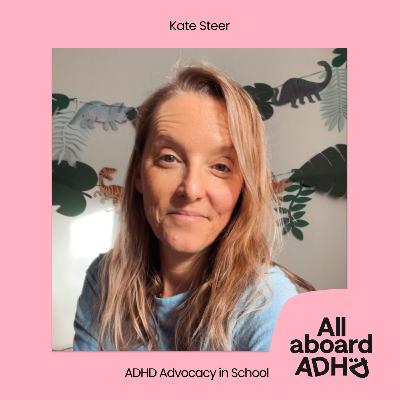

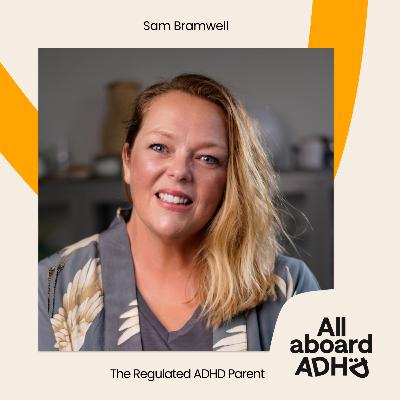
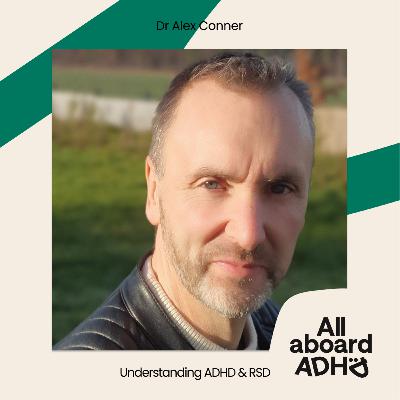
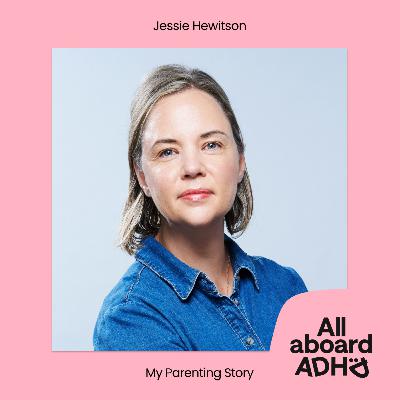
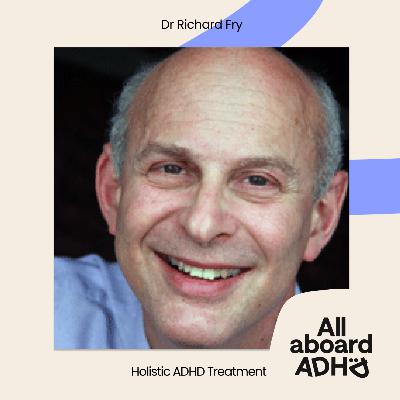
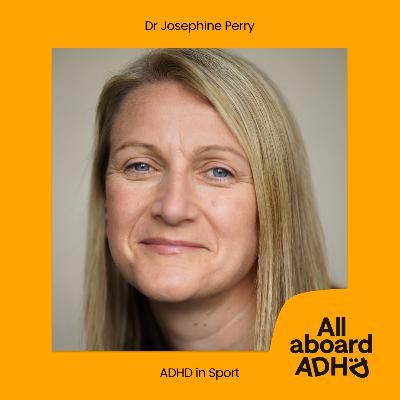

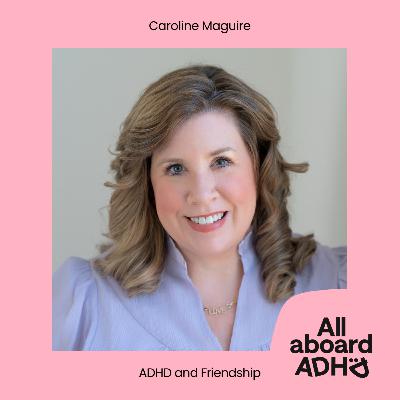
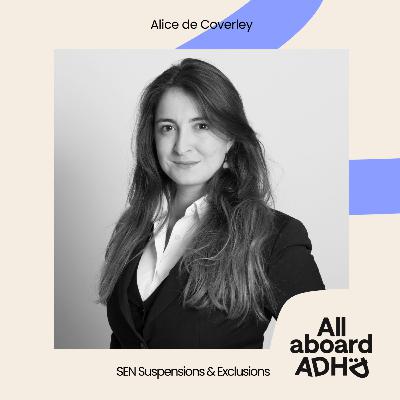
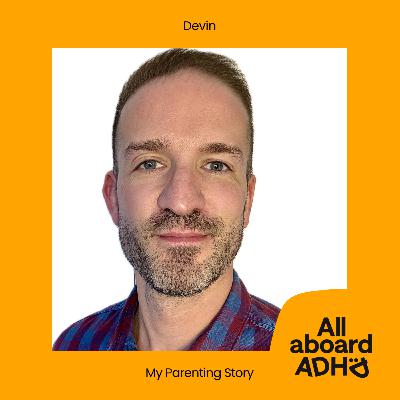
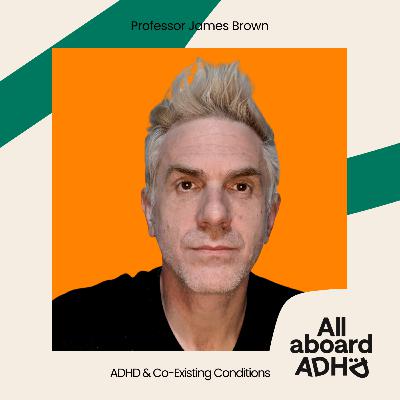
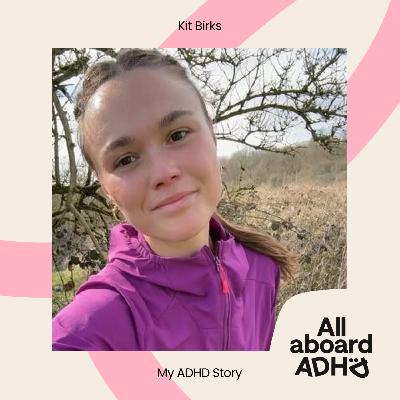
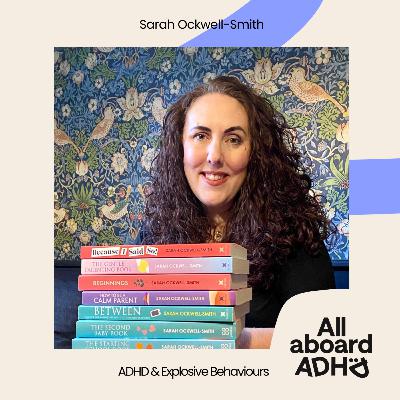
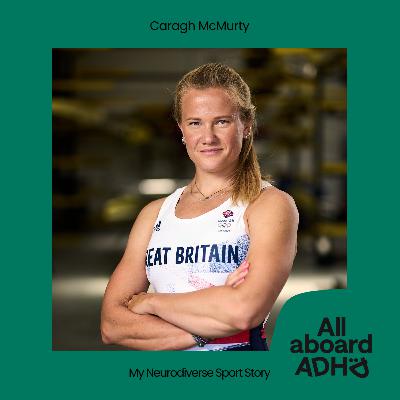
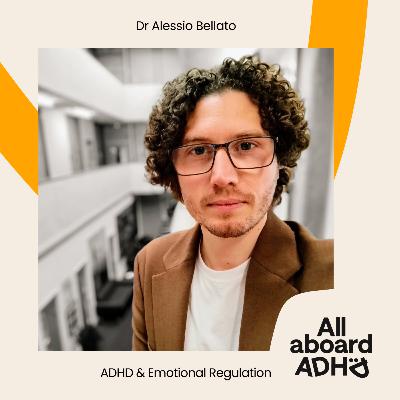
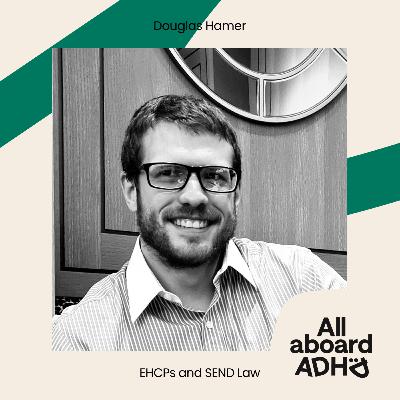



This is so unbelievably relatable! Thanks for sharing your story, Hannah.